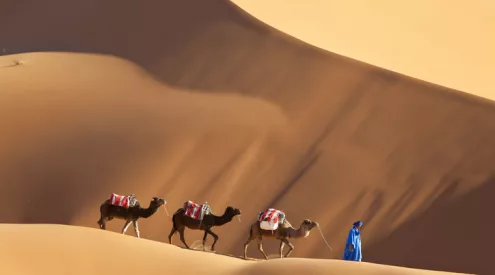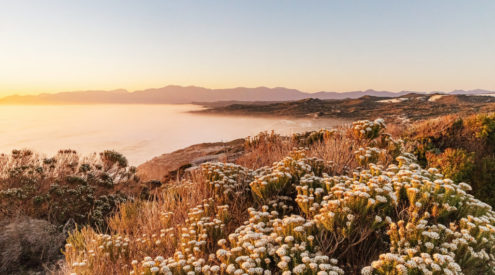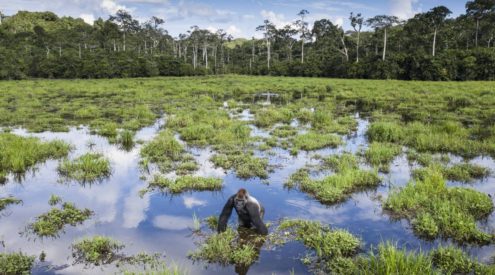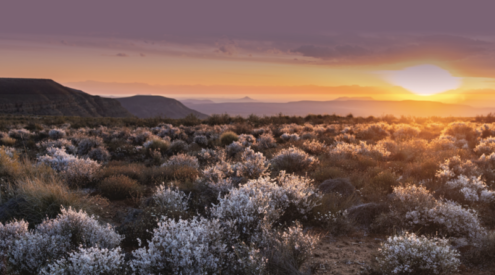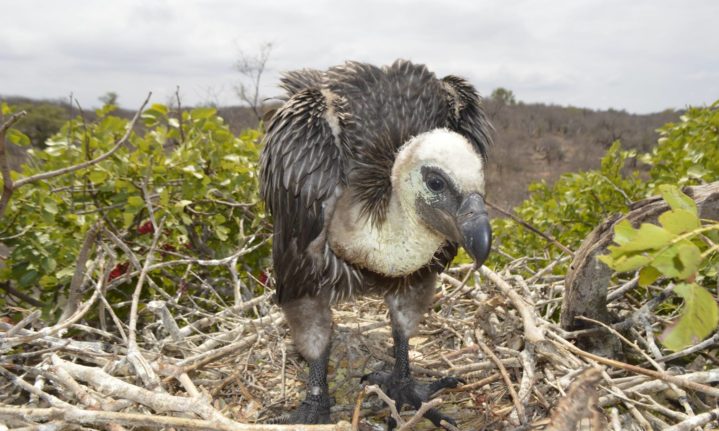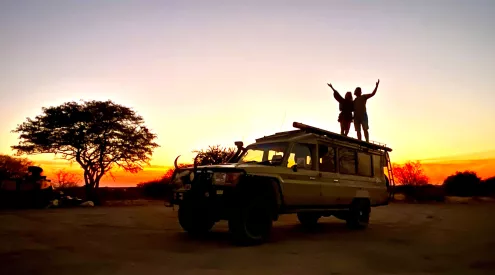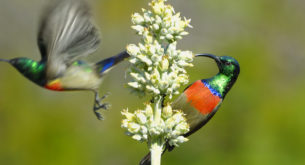The white-backed vulture (Gyps africanus) has been classified as critically endangered according to the IUCN Red List of Threatened Species, and climate change, among other factors, is considered a big threat to the species’ declining population of mature individuals. The birds are at odds with the environment for their survival. Chicks are not able to fend for themselves. But VulPro, a sanctuary and rehabilitation centre near the Haartebeestpoort Dam is working to save the endangered species.
The southern African Vulture Conservation Programme NGO (VulPro) was founded, and is managed, by Kerri Wolton. Wolton said in the past breeding numbers for the white-backed vulture looked stable, but they are endangered not only in the southern African region but globally too.
Image credit: VulPro
VulPro is concerned about the drought that has affected the Pretoria area, as vultures consume a lot of water.
Wolton feeds some vultures 250mm twice a day in the sanctuary. Water supplies are low in the dams and natural springs and rivers. The extent of the drought is such that three provinces were declared national disasters last year by the National Disaster Management Centre.
Factors such as climate change and increasing temperatures lead to the decline of the survival rate of chicks, and 2019 is expected to be hotter. ‘Last year, when we looked at the number of hatching chicks, we noticed a huge drop in the numbers. With the current environmental conditions the survival rates are very poor,’ said Wolton.
Vultures play an important role in South Africa’s eco system, cleaning up the environment by eating dead carcasses.
A weak vulture can lose all sense of direction, becoming confused. Younger vultures panic after leaving the nest, as they are still dependent on their parents for feeding and often find themselves stranded on highways in urban areas.
‘Distressed chicklings rely on parents to help them with food. But chicks become compromised because of heat stroke, and become weak. They are not able to get back to their breeding route. Flights involve fighting against strong winds, bringing [them] into areas they shouldn’t be. The chicks are not experienced to fight against the more experienced vultures.’
A chickling with mother. Image credit: VulPro.
‘My sense, or what I believe is going to start happening, is that adults will also face devastating effects,’ said Wolton, speaking about climate change in particular. Climate change affects rainfall, wind speeds and in the current situation, can increase temperature.
‘How do we counteract climate change?’ Wolton was left wondering in the end. Hopefully through awareness and education we will not lose this bird completely.
Facts about the African White-backed vulture:
-
There is a high likelihood of extinction in the next 20 years.
-
Consumption of carcasses by these birds can decrease the spread of some diseases.
-
The scent associated with vultures is not in fact the smell of the animal itself. Rather, it is the regurgitation of food as they vomit when they feel stressed or under threat. It is a defence mechanism the empty their stomachs to flee without the added weight.
-
Every time these vultures eat, the birds will bathe themselves in water.
For more information, contact VulPro on 0828085113, or visit their website www.vulpro.com.
Featured images: supplied/VulPro.





